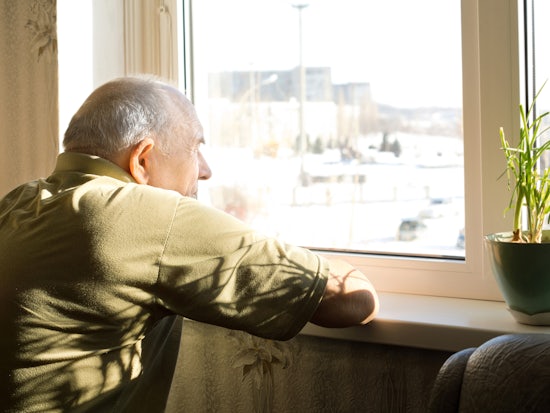Conference technology talk tackles isolation and loneliness
Combating social isolation and loneliness among older Australians is more important now than ever after it was revealed by the Minister for Aged Care, Ken Wyatt, in a recent address to the National Press Club, that up to 40 percent of aged care residents receive no visitors.

The use of technology to tackle social isolation and loneliness among older Australians is just one of the topics for the ITAC 2017 Conference (Source: Shutterstock)
Aged care provider Brightwater Care Group is working to tackle the issues of isolation and loneliness with technology and will be taking to the stage at the upcoming Information Technology in Aged Care (ITAC) Conference to share their progress with the rest of the industry.
As her first time attending the conference, Chief Executive Officer of Brightwater Care Group Jennifer Lawrence says she is looking forward to sharing important information from her workplace and learning what others in the sector are doing in terms of technology.
“As our population continues to age, the challenge of ensuring meaningful social interaction for people at different stages of ageing and capacity also grows, especially those with cognitive decline,” Ms Lawrence says.
“We already know that many people feel socially isolated, and technology has an exciting role to play in this area; social isolation is an issue – in cities, regional areas, at home or in care.
“Our socialisation robot project provided an opportunity to see how technology can bring comfort and joy to our own clients while contributing to greater research questions in this area.”
The presentation will outline Brightwater’s experience of introducing a socialisation robot to our clients with dementia at four of our aged care facilities in Western Australia.
“This project aimed to investigate the impact of the robot – Zoraot ‘alice’ – on the social engagement of older adults with cognitive decline, and explore staff attitudes to the use of this technology,” Ms Lawrence explains.
“The ITAC Conference is an opportunity to learn and share with industry colleagues. Many of us face similar issues, and this is such an exciting time to collaborate and become part of the solution for what we will face tomorrow.”
The research conducted by Brightwater was carried out and completed between September 2016 and June 2017.
Ms Lawrence says the socialisation robot used in the research project is also a great example of how technology can be used to combat loneliness in those feeling cognitively isolated.
“Our residents likened Alice to a person and attached very human traits to the robot, showing high levels of connectedness not just with the activities but also smiling and interacting with other residents,” she says.
“As we age, it can become more difficult to retain our connection with the community, our sense of purpose, independence and dignity – and being isolated exacerbates these feelings.”
She adds that we all want to feel connected and cared for at this time of life, and the measure of our society is if we can support our ageing population at the time they most need it.
“Technological developments are enhancing many health care services in the aged care and disability sectors, and Brightwater embrace these opportunities to contribute to these communities,” she continues.
“Technology is everywhere in our society, and aged care is no different – but it’s how technology is developed and ultimately applied that makes a positive impact in the way we can care for our clients.
“We are all working to provide care that connects with clients and increases personal wellbeing.”
Brightwater Care Group and a number of other speakers will take to the stage on the topic ‘Navigating the Future’ at the ITAC Conference on 21 and 22 November 2017 at the Gold Coast Convention and Exhibition Centre.























